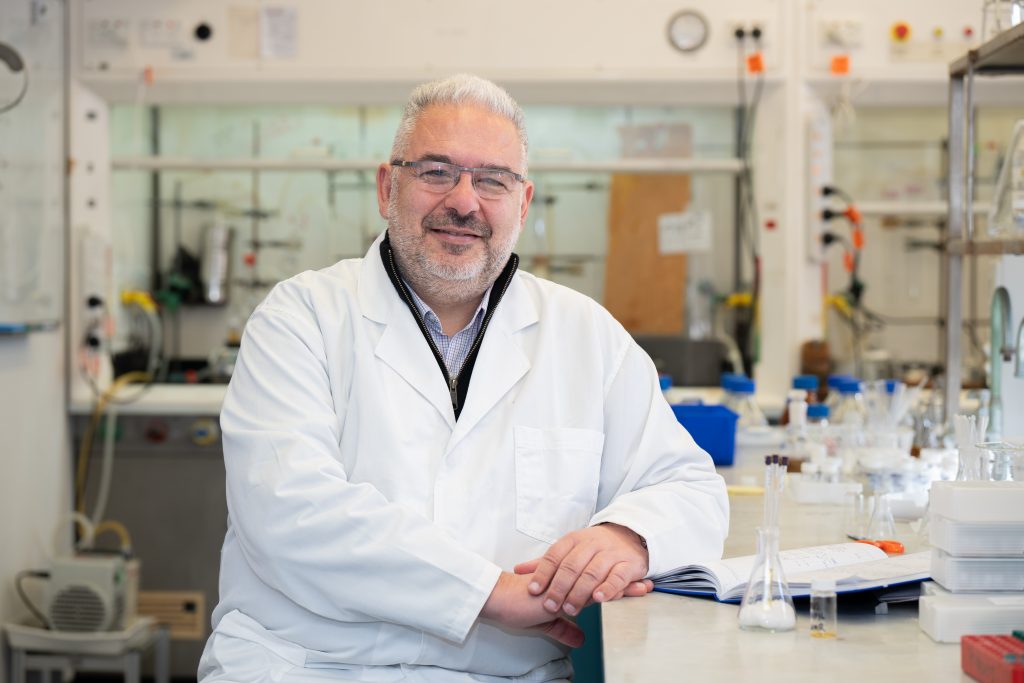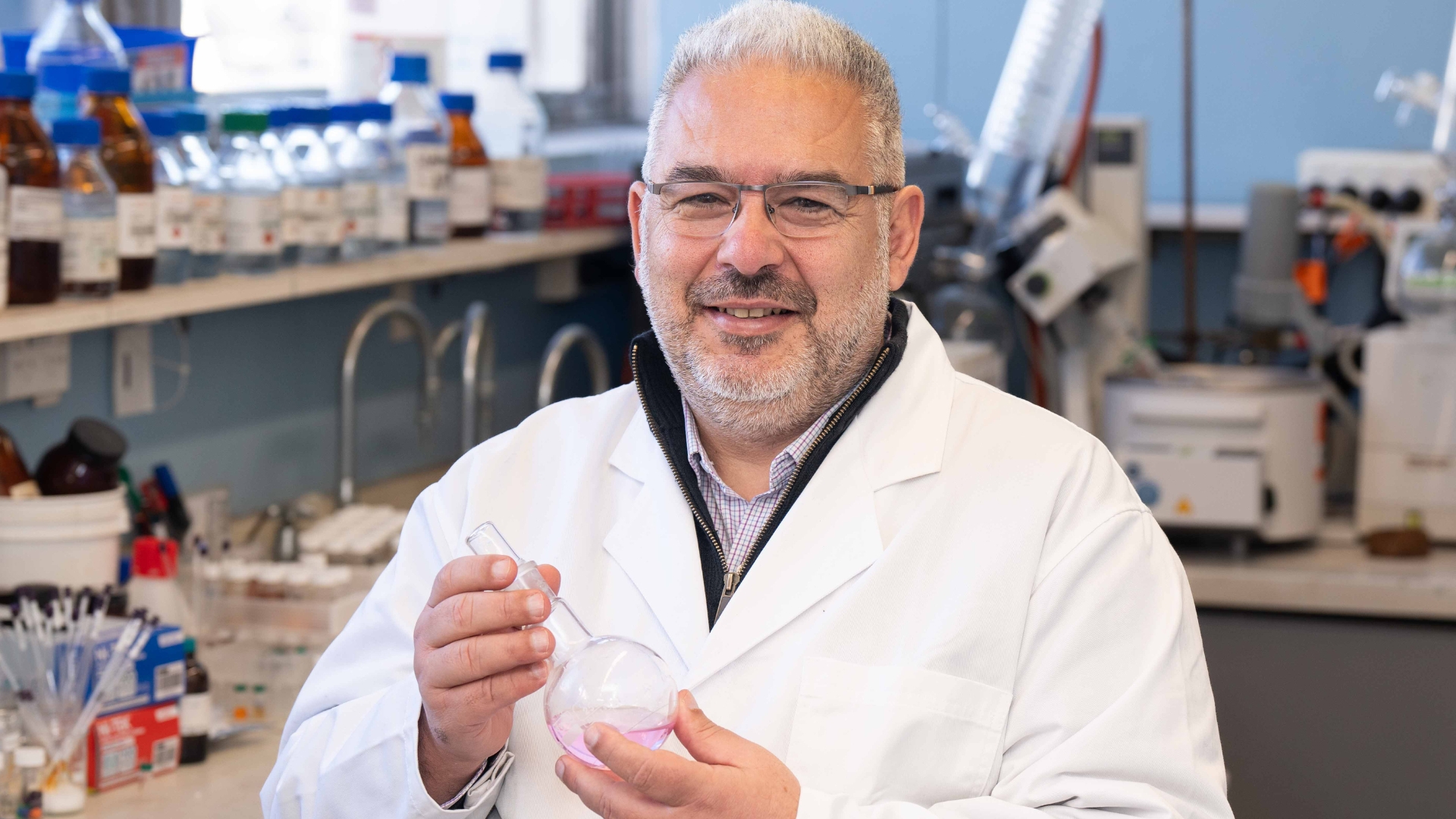Greek Australian Professor Michael Kassiou has been named a finalist in the 2023 Australian Museum Eureka Prizes.
Professor Kassiou is a finalist in the Eureka Prize for Leadership in Science and Innovation. He is being recognised for driving new approaches to drug discovery for challenging health conditions such as brain disorders and cardiovascular disease.
Ahead of the Eureka Prizes awards night on Wednesday, August 23, The Greek Herald sat down with Professor Kassiou to hear about his career and the influence of his Greek heritage on his life.
Congratulations on being named a finalist in the Eureka Prize for Leadership in Science and Innovation. How does it feel to be recognised?
I am honoured to be among the finalists for the Eureka Awards. It makes me proud of the years of hard work that my team and I have put into trying to make a difference with our research. This is in recognition to all those that contributed no matter how big or small.

Tell us a little bit about your Greek heritage / upbringing.
My parents are both Greek, from the islands of Kos and Rhodes, and came to Australia in the early 1960s. They worked hard, making many sacrifices, and struggled with the English language, as many did at the time in order to establish a better life for themselves. They would go without to ensure that we had every opportunity they didn’t.
Yet they successfully raised three children, instilling in us strong values/morals, faith, and the need to aspire to make our dreams a reality. Any success we have is a reflection of them, and I am and always will be enormously proud of them and my Greek upbringing.
You recently developed molecules which could potentially be a method for treating dementia, depression and schizophrenia. Can you detail how this discovery came about?
We’ve been trying to discover small molecules that can activate the brain’s oxytocin receptors for over a decade. Intranasal oxytocin, the endogenous peptide responsible for activating these receptors, is now used in clinical trials. However, there are significant limits to using oxytocin, including its instability and difficulty to reach the brain.
We found the first non-peptide small molecules that can enter the brain and activate these receptors by employing a non-oxytocin receptor clinical candidate produced in our laboratory. We have identified compounds that activate the oxytocin receptor in diverse ways, which is very exciting because it allows us to examine the role of oxytocin receptors in disorders of the brain in ways that have not been previously possible.
How will this medical innovation challenge / revolutionise the way these conditions are currently treated?
Many psychiatric and neurological disorders are characterised by asocial symptoms, such as social withdrawal and poor social cognition, which are closely linked to the functioning of the oxytocin receptor. Despite this, we have no effective pharmacotherapies for the social symptoms of these conditions.
We know that social interactions are a building block of society and necessary for maintaining good health and longevity. Our medical innovations will help people suffering from these conditions to re-engage with society to lead meaningful and productive lives.
How has your Greek upbringing influenced your work and these innovations?
I was raised from a young age to value the significance of family, particularly extended family, which is part of our Greek culture. It is our support system and gives us a sense of belonging. So finding discoveries that may benefit others was almost inevitable. I attempt to instil these values in my own children and remind them that your legacy will always be what you have done for others not for yourself.
What advice would you give to other young people who want to get involved in the medical field?
Sometimes we can get caught up in the safety and routine of things. My advice is to be courageous and challenge yourself. Nothing stifles possibility and creativity more than the all-too-familiar phrase “we’ve always done it that way”
Is there anything else you’d like to say?
It is important that we continue to mentor young researchers and provide an environment to help them maintain an inquisitive mind with the application of scientific rigour. It is critical to ensure the next generation of research leaders can continue to make positive impacts in society.
I am quite proud of my eldest daughter Tina who is currently studying medical sciences and I am excited to see what she and her siblings Sophie and Steven will achieve in the future.
The AM Eureka Prizes winners will be announced on Wednesday, 23 August, at a ceremony held at the Australian Museum. A livestream of the awards will also be available online. Register for the livestream at australian.museum/eurekaprizes.
